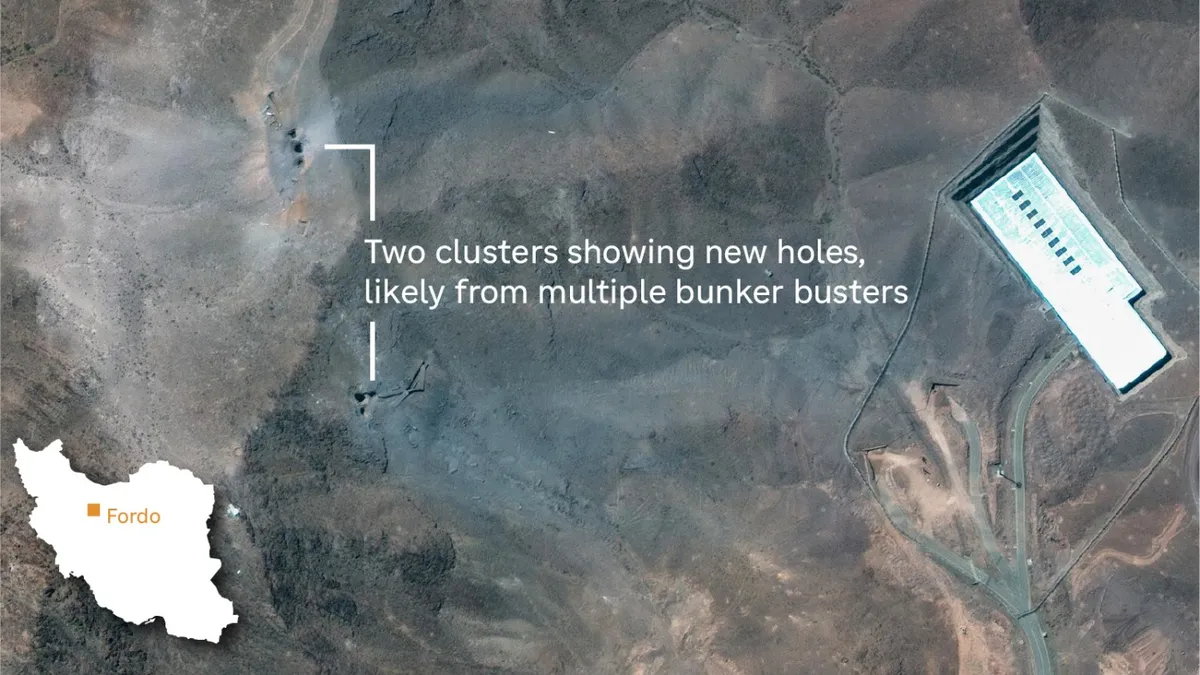
A U.S. official, who requested anonymity due to a lack of authorization for public statements, has confirmed initial intelligence assessments from the Defense Intelligence Agency (DIA). These assessments indicate that the extensive U.S. air campaign targeting three critical Iran nuclear sites on Saturday night did not achieve the complete destruction of Iran's nuclear enrichment program, contrary to President Trump's assertions. Instead, the airstrikes are believed to have set back the program by only a few months. CNN was the first to report on this DIA assessment.
According to the official, early intelligence evaluations were communicated to select senators, including Virginia's Mark Warner, who serves as the leading Democrat on the Senate Intelligence Committee. Warner expressed his concerns during an interview with NPR's "All Things Considered," stating, "I have a whole lot of questions for this administration. What are the next steps? How do we make sure that there's not Iran racing now to a dirty bomb?" He emphasized that both he and the American public deserve clarity on these pressing issues.
The full Senate was scheduled for a classified briefing from the administration on Tuesday afternoon; however, this meeting was canceled and postponed to later in the week. This delay raises additional questions regarding the transparency and communication of the administration's military actions.
White House Press Secretary Karoline Leavitt criticized CNN's report, labeling it "flat-out wrong" and asserting that a key nuclear facility had indeed been destroyed. She contended that the information leak was a deliberate attempt to undermine President Trump. However, the White House has yet to provide further comments in response to NPR's inquiries regarding the intelligence assessments.
This development comes shortly after a ceasefire was declared by President Trump between Israel and Iran, with both nations agreeing to halt hostilities. Israel has consistently stated that its primary objective in the conflict has been to dismantle Iran's nuclear program, a goal that aligns with longstanding U.S. interests. Speaking aboard Air Force One, Trump reiterated that this objective had been successfully achieved, claiming, "They're not going to have enrichment and they're not going to have a nuclear weapon." He further asserted that Iran was no longer focused on its nuclear ambitions.
In stark contrast, Iranian officials have publicly rejected Trump’s claims. Mohammad Bagher Ghalibaf, the Speaker of Iran's Parliament, stated in a post on X (formerly Twitter) that Iran would completely ignore Israel's demands to cease uranium enrichment, a crucial step in developing a nuclear weapon. He affirmed that Iran would continue to act in its self-interest. Additionally, Hamad Eslami, head of Iran's Atomic Energy Agency, confirmed that Iran was evaluating the damage caused by the U.S. airstrikes, but remained determined to maintain their production processes. "Our plan is to not allow any interruption in the production and service process," Eslami declared.
The U.S. military utilized massive bunker-buster bombs to target three pivotal nuclear facilities in Iran, including the Fordo site, which is strategically located deep within a mountain. Following these strikes, President Trump hailed the operation as a "spectacular military success," proclaiming that Iran's key nuclear enrichment facilities had been "completely and totally obliterated." However, the U.S. official revealed that intelligence assessments indicated only limited damage to the critical infrastructure at the Fordo facility.
Independent experts consulted by NPR reached similar conclusions after analyzing commercial satellite imagery, asserting that Iran's nuclear capabilities remain largely intact. Jeffrey Lewis, a professor at the Middlebury Institute of International Studies at Monterey, noted, "If this ends here, it's a really incomplete strike." Experts have long warned that Iran's nuclear potential extends beyond its physical facilities; it is also deeply rooted in the extensive knowledge possessed by its scientists and engineers—an aspect that is significantly more challenging to dismantle.
Kenneth Pollack, Vice President for Policy at the Middle East Institute, emphasized the futility of attempts to entirely eliminate Iran's capacity to develop nuclear weapons, stating, "The knowledge is just too widespread within the Iranian system." This perspective underscores the complexity of addressing Iran's nuclear ambitions through military means alone, highlighting the necessity for a multifaceted approach that includes diplomatic engagement and strategic oversight.